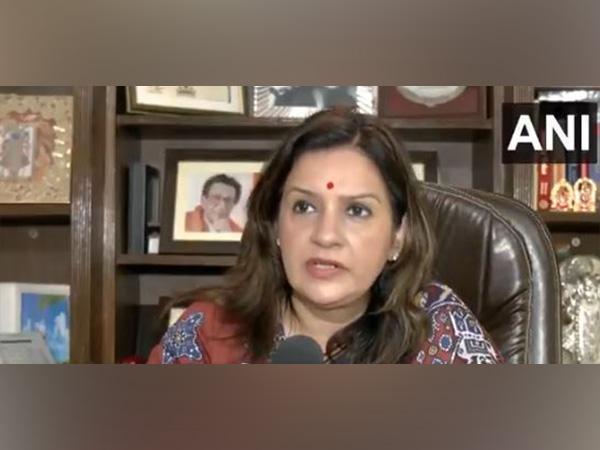
Title: Tariffs Aren’t One-Way, We Can Hit Them Too: Sena (UBT) MP Priyanka Chaturvedi
In a recent statement, Shiv Sena (UBT) Member of Parliament (MP) Priyanka Chaturvedi has sparked a debate on the issue of tariffs and trade policies. In response to US President Donald Trump’s threat to impose tariffs on Indian goods, Chaturvedi has made it clear that India will not be intimidated and can also impose tariffs on goods imported from the US. This stance has raised questions about the implications of tariffs on international trade and the need for countries to stand up for their interests.
Chaturvedi’s statement comes at a time when the global economy is facing significant challenges, including trade tensions and uncertainty. The imposition of tariffs by the US on Indian goods has led to concerns about the impact on India’s economy, particularly in sectors such as textiles, leather, and gems and jewelry. However, Chaturvedi’s assertion that tariffs are not one-way traffic and that India can hit back with tariffs of its own has sent a strong signal to the US administration.
The statement has also raised questions about the fairness of accusing India alone of not reciprocating in trade terms. Chaturvedi pointed out that the US, EU, and China continue to trade with Russia, which has been sanctioned by the international community. She argued that it is unfair to expect India to bear the brunt of the trade tensions, while other countries are allowed to continue trading with Russia.
The imposition of tariffs by the US on Indian goods has already had a significant impact on Indian businesses. The Confederation of Indian Industry (CII) has estimated that the tariffs could lead to a loss of up to $2 billion in exports, affecting thousands of jobs. The Indian government has responded by imposing retaliatory tariffs on 28 US goods, including almonds, apples, and walnuts.
Chaturvedi’s statement has also sparked a debate about the need for India to impose tariffs on goods imported from the US. She argued that India imports a significant amount of goods from the US, including agricultural products, and that imposing tariffs on these goods would help to level the playing field. This stance has been supported by some experts, who argue that India needs to take a more assertive stance in trade negotiations to protect its interests.
However, others have expressed concerns about the impact of tariffs on international trade. Tariffs can lead to a increase in the cost of goods, which can have a negative impact on consumers and businesses. Additionally, tariffs can also lead to a reduction in trade, which can have long-term consequences for economic growth and development.
In conclusion, Priyanka Chaturvedi’s statement has sparked a debate about the issue of tariffs and trade policies. While some experts argue that India needs to take a more assertive stance in trade negotiations to protect its interests, others have expressed concerns about the impact of tariffs on international trade. The imposition of tariffs by the US on Indian goods has already had a significant impact on Indian businesses, and it remains to be seen how the situation will unfold in the coming months.






